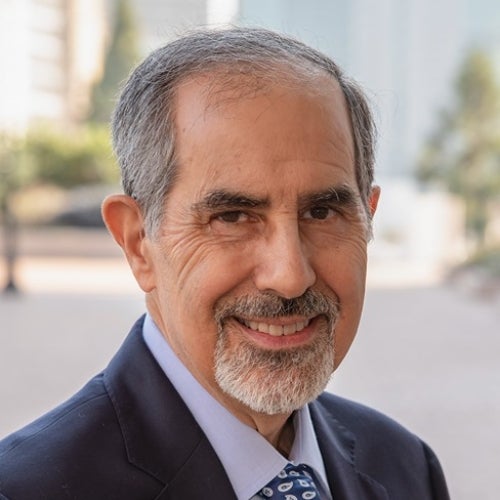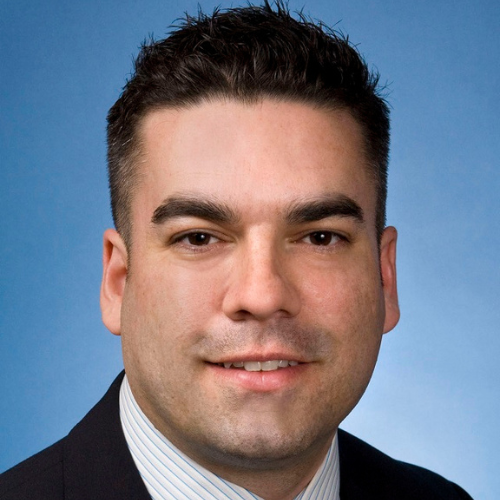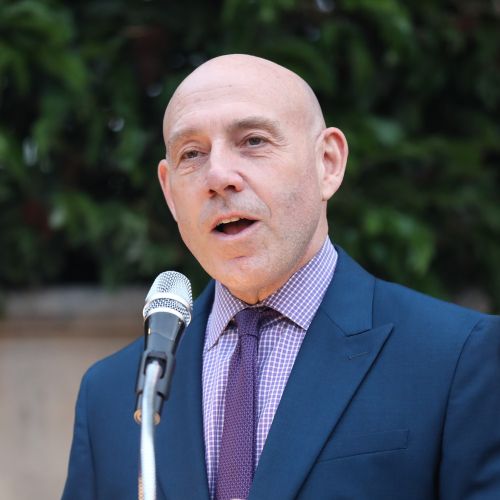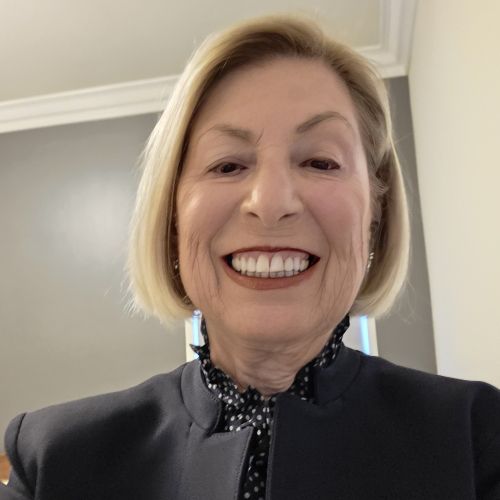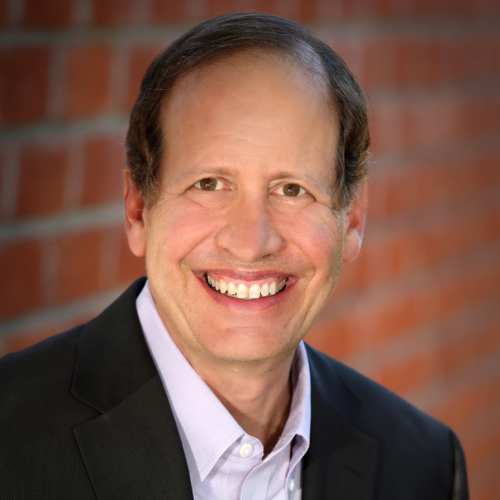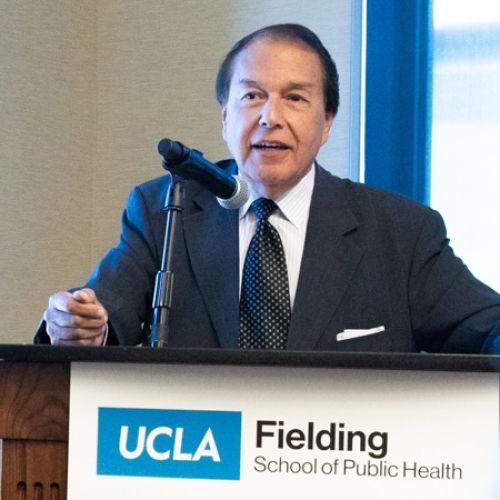Report: Premium cigar ingredients as harmful as cigars and cigarettes
Dr. Steven Teutsch led a National Academies of Sciences, Engineering, and Medicine team investigating the health effects of "premium" cigars.

The ingredients in premium cigars make them inherently as harmful as cigarettes and other types of cigars, says a new report from the National Academies of Sciences, Engineering, and Medicine. Because the majority of premium cigar smokers are nondaily or occasional users, and because they are less likely to inhale the smoke, the population health effects are currently modest.
Premium Cigars: Patterns of Use, Marketing, and Health Effects contains 13 conclusions related to health risks, addiction potential, and secondhand smoke exposure associated with premium cigars. It also provides recommendations to inform federal research on premium cigars, said Dr. Steven Teutsch, UCLA Fielding School of Public Health professor of health policy and management and chair of the National Academies, or NASEM, committee that wrote the report. The work was requested by the U.S. Food and Drug Administration (FDA) and National Institutes of Health (NIH).
"Currently, about 1% of the U.S. adult population smoke premium cigars, and this percentage has remained stable over time," said Teutsch, who also serves as a faculty affiliate with the UCLA Fielding School's UCLA Center for Health Advancement. "The aim of this report is to provide FDA with the best available scientific information and to identify priorities for federally funded research on premium cigars."
No single characteristic differentiates premium cigars from other cigars, says the report. To guide its work, the committee that wrote the report defined a premium cigar as having all of the following six characteristics: handmade, composed of at least 50 percent natural long-leaf filler tobacco, wrapped in whole leaf tobacco, weighs at least 6 pounds per 1,000 units, has no filters or tips, and has no characterizing flavor other than tobacco. While the committee provided a working definition of premium cigars, it was not charged with recommending a regulatory definition or whether the FDA should regulate premium cigars.
The toxicants and carcinogens in premium cigar smoke are nearly identical to those in cigarette smoke, and they are capable of causing heart disease, cancers (lung, oral, head, and neck), respiratory diseases, and other adverse health effects, the report concludes. One’s actual health risks from smoking premium cigars, though, will be determined by smoking behavior — including frequency of use, the pattern and duration of smoking, and how deeply the smoke is inhaled. These conclusions are based on epidemiologic studies of cigars in general and biological mechanisms, as no currently available studies distinguish premium from other cigar types.
Premium cigar smokers are overwhelmingly male, older, white, and with higher income and education levels, and use is extremely rare among youth. However, the report concludes, should flavorings be added to premium cigars, it could result in increased popularity of the product, greater appeal to nonusers, and more frequent use — leading to increased nicotine intake, addiction potential, and exposure to harmful and potentially harmful chemicals.
Due to lack of data, there is insufficient evidence to determine if secondhand exposure to premium cigar smoke specifically is associated with health risks, the report concludes. There is plausible concern that people with underlying heart disease could be particularly vulnerable to secondhand premium cigar smoke. The location where premium cigars are used is a consideration with determining secondhand exposure risks (for example, outdoors versus indoors).
“One of the biggest research challenges we found is there isn’t a consistent definition of a premium cigar or other cigar types — a common definition is needed for future research,” Teutsch said. “Although premium cigars are not currently widely used, patterns of use could shift based on changes in price, marketing practices, or regulatory changes. Therefore, the research agenda recommended by the committee is needed to provide an understanding of premium cigar use, consumer awareness and perceptions, and health effects over time.”
Marketing and Risk Perceptions
Cigar lifestyle magazines, festivals, and social media sites have become popular forums for the tobacco industry to market premium cigars. Across these forums, the evidence is strongly suggestive that premium cigars are marketed as a product with benefits that outweigh their adverse health effects. Some content within lifestyle magazines implies the health effects of premium cigar use is lower compared to cigarette use, and that premium cigars are a safe substitution for cigarettes. Moreover, as social media platforms evolve, tobacco companies’ marketing practices will likely evolve, too. Future studies need to keep up with these changing trends, says the report, and research on consumer knowledge of premium cigars, including the definition and whether consumers distinguish premium cigars from other cigars, is needed.
Priority Research Areas
The FDA, in consultation with other federal agencies, should develop formal categories and definitions for cigars to be used for research to ensure consistency among studies. Using common definitions of cigar types, the FDA, the National Institutes of Health, and other federal agencies should support research on the health effects of premium cigars, compared to other large cigars, little cigars, or cigarillos. Research should also evaluate how various premium cigar characteristics (such as size, shape, type of tobacco, flavor, and moisture) affect puffing duration and volume.
The report also recommends the U.S. Department of Health and Human Services, in partnership with the Alcohol and Tobacco Tax and Trade Bureau and the Federal Trade Commission, develop surveillance and evaluation systems that regularly monitor patterns of cigar use, product characteristics, and consumer knowledge and perceptions by cigar type. These systems should also track exposure to cigar smoke and related health outcomes; monitor tobacco industry marketing and promotion strategies and sales; and track cigar prices by cigar type. In addition, the agency should ensure that the tobacco research it already supports, such as the Population Assessment of Tobacco and Health, surveys participants about premium cigar use.
The study — undertaken by the Committee on Patterns of Use and Health Effects of “Premium Cigars” and Priority Research — was sponsored by the U.S. Food and Drug Administration and the National Institutes of Health. The National Academies of Sciences, Engineering, and Medicine are private, nonprofit institutions that provide independent, objective analysis and advice to the nation to solve complex problems and inform public policy decisions related to science, technology, and medicine. They operate under an 1863 congressional charter to the National Academy of Sciences, signed by President Lincoln.
by Stephanie Miceli
The UCLA Fielding School of Public Health, founded in 1961, is dedicated to enhancing the public's health by conducting innovative research, training future leaders and health professionals from diverse backgrounds, translating research into policy and practice, and serving our local communities and the communities of the nation and the world. The school has 761 students from 26 nations engaged in carrying out the vision of building healthy futures in greater Los Angeles, California, the nation and the world.
Faculty Referenced by this Article

EMPH Academic Program Director with expertise in healthcare marketing, finance, and reproductive health policy, teaching in the EMPH, MPH, MHA program

Professor of Community Health Sciences & Health Policy and Management, and Associate Dean for Research
Nationally recognized health services researcher and sociomedical scientist with 25+ years' experience in effectiveness and implementation research.

Dr. Michelle S. Keller is a health services researcher whose research focuses on the use and prescribing of high-risk medications.

Dr. Ron Andersen is the Wasserman Professor Emeritus in the UCLA Departments of Health Policy and Management.



